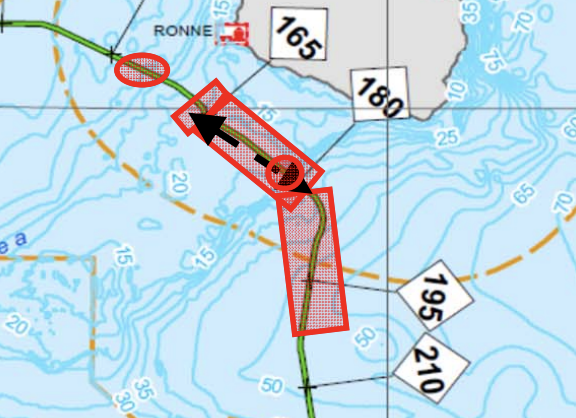What goes on in Poland on the 27th of July.
Changing of the guard of the Baltic Pipe builders in the Baltic Sea
Castorone has replaced Castoro Sei in the construction of the Baltic Pipe in the Danish Exclusive Economic Zone. According to the plan, the largest pipe laying unit in Saipem’s fleet is to build the Baltic Pipe towards the Polish coast. Meanwhile, the project in the Baltic Sea is over 50 percent ready.
During its final 17 days at sea, the Castoro Sei, laid about 32 km of the Baltic Pipe with an average daily speed of up to 1.9 km. The unit lowered the pipes to the bottom at Construction Point 182 (PK 182-182 km away from the Danish coast). From here, further construction will be carried out by Castorone, which previously laid the entire Swedish section of the Baltic Pipe. The vessel is currently taking the lowered pipes on board.
There are almost 140 km of gas main pipes running from Norway to Poland in the Baltic Sea. In total, the Baltic section is 275 km long, which means that the construction of the offshore part has reached the halfway point. All pipe-laying works are to be completed in October 2021.
The government succumbs to industry and energy. The obligation to participate in RES will be lower
The Ministry of Climate and Environment has proposed to reduce the obligation to participate in Renewable Energy Sources (RES) from the planned 19.5 percent to 18.5 percent in 2022. At first, the ministry proposed that the participation be higher by one percent, but changed its mind after public consultations.
In the draft regulation, the ministry proposed adopting the RES obligation in 2022 at the level from 2021, i.e. 19.5 percent for green certificates and 0.5 percent for blue certificates. However, after consultations, it lowered this obligation to 18.5 percent. „The situation on the green certificates market is significantly impacted not only by their supply, but also by the price of electricity. In the case of the prices on the competitive market, it can be seen that in 2020 the upward trend was somewhat halted as a result of the COVID-19 pandemic and the consequent decline in energy consumption. However, it should be assumed that due to external factors, the phenomenon of the increase in electricity sales prices will continue to progress,” we read in the regulatory impact assessment. The Ministry also emphasizes that “increasing the share in question in 2020 to the current level translated into a gradual reduction of oversupply and ensuring a balance of supply and demand on the market of renewable energy certificates”.
„As a result of the consultations, the draft regulation was changed. The quantitative share of the sum of electricity resulting from redeemed certificates of origin confirming the production of electricity from renewable energy sources in 2022 was reduced from 19.5 percent to 18.5 percent,” we read in the statement.









